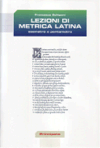
La velocità di riproduzione dei video di YouTube è regolabile cliccando sul menu Impostazioni (uno dei pulsanti in basso a destra rispetto alla schermata), poi su Velocità, infine scegliendo fra le opzioni disponibili (si va da 0.25, lentissimo, a 2, molto veloce).
Proposte settimanali:
I will use one topic to teach you important English grammar (the first conditional), as well as vocabulary. You'll also learn a lot about North American culture. I'll teach you all this stuff by talking about superstitions. Is the number 13 bad luck in your culture? If you break a mirror, will you have bad luck? If you find a penny on the ground, do you think you will have a good day? Every culture has beliefs about luck. We call these beliefs superstitions. Some superstitions are common around the world, but many are very specific to a particular country or culture. My mom is really superstitious, so I grew up with a lot of these beliefs. In this video, I'll give you some examples of common North American superstitions, and in the second half of the video, I'll use this topic to teach you how to use the first conditional in English. Watch this video now. If you don't, your computer might get a virus.
Let's kick off this lesson with an explanation of phrasal verbs, then move on to different phrasals using the verb KICK. In this lesson you will discover the meanings of kick in, kick off, kick around, kick back, kick out, kick about, kick up, and kick over. Phrasal verbs are an important part of English vocabulary, so watch and learn these eight 'kick' phrasal verbs.
Opzionale: lettura ad alta voce di un testo in inglese (dieci minuti al giorno)









